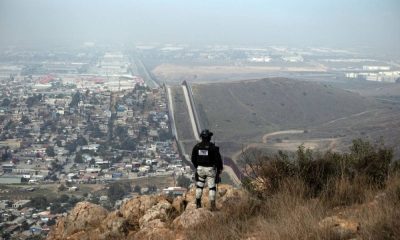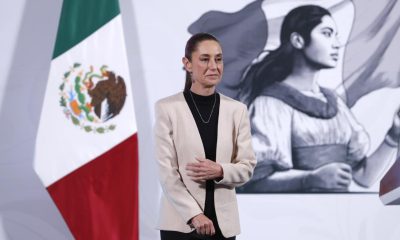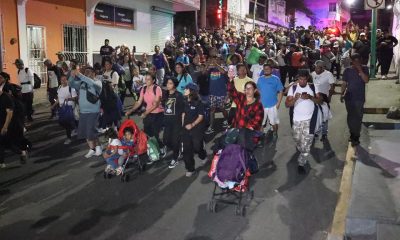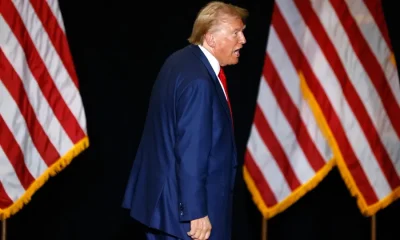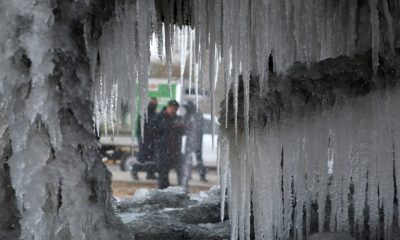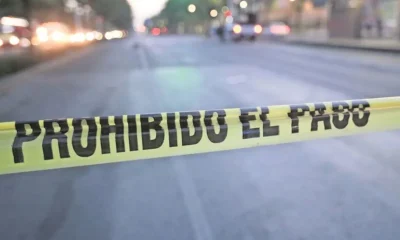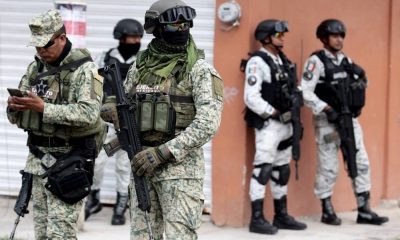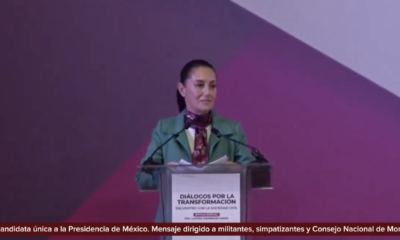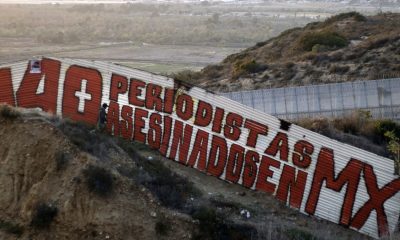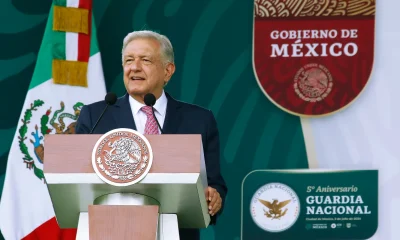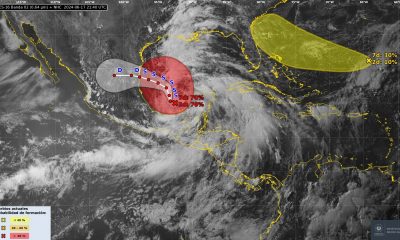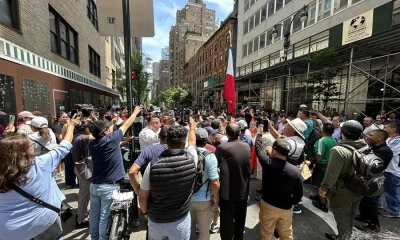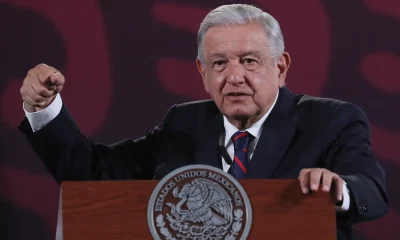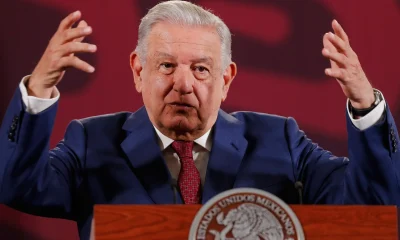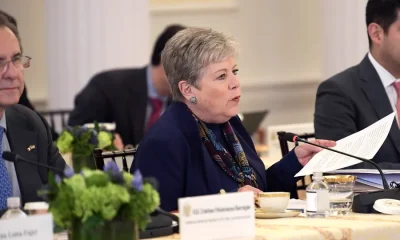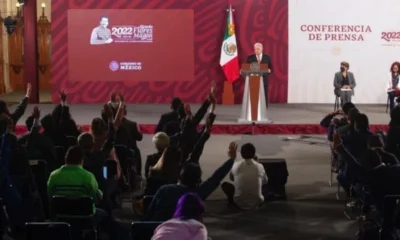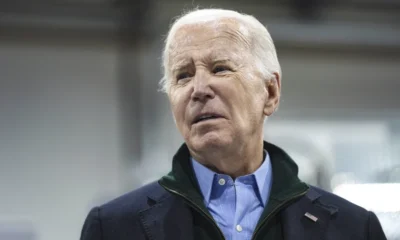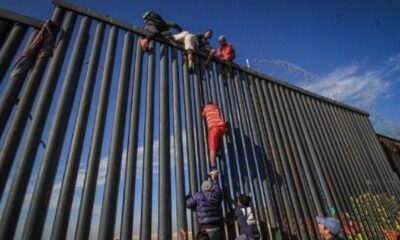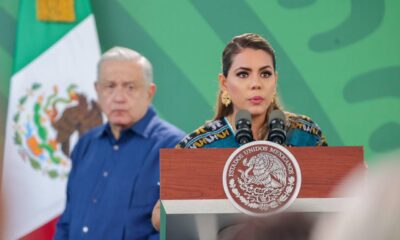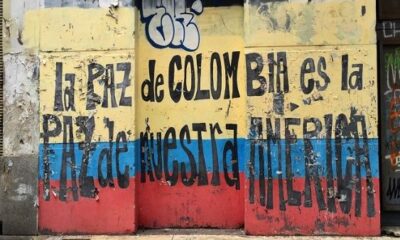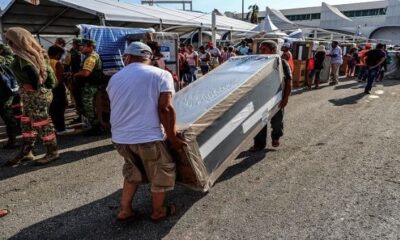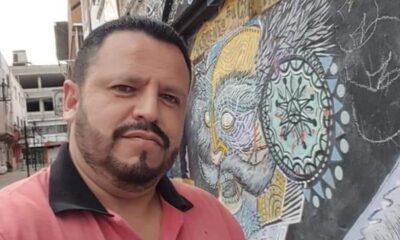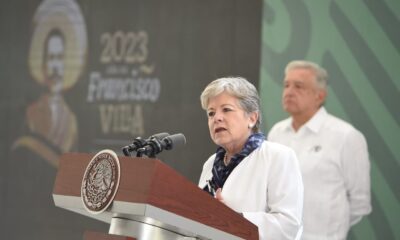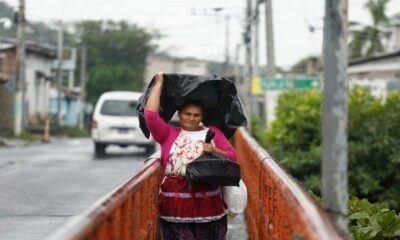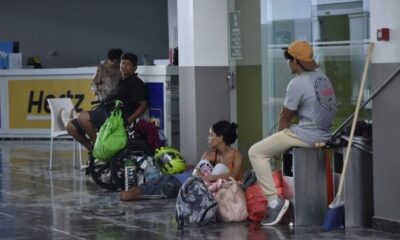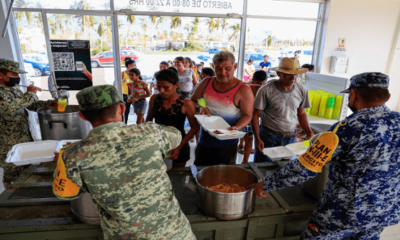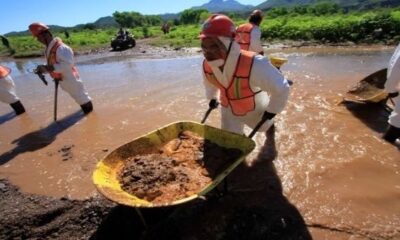International
Displaced by the crime in southern Mexico threaten to boycott the elections
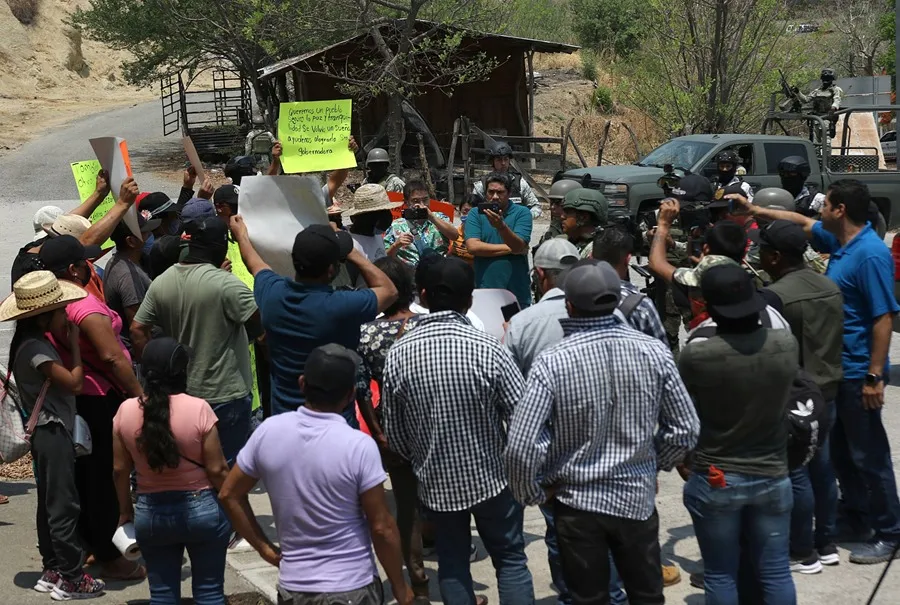
Inhabitants displaced by organized crime in the Sierra de Guerrero, a southern state of Mexico that faces a wave of violence, protested this Thursday to demand security and warned of a boycott in Sunday’s elections.
The group of people from the municipality of Leonardo Bravo was placed with banners at the entrance to the municipal capital, Chichihualco, where they will block the interstate road, if they do not have a solution before the elections.
“We want a solution now, before Sunday, because, if not, there are no votes on Sunday,” said one of the protesters with a half-covered face.
The protesters belong to about 20 communities in the mountains, with between four and six years of having left their villages due to the threats of criminal groups.
In addition, they denounced that the criminal group of Los Tlacos looted or burned their homes, appropriated their land and stole their animals.
The demonstrators asked for help from the federal government and the state of Guerrero to recover his life, so they requested the permanent installation of two Army operations bases in El Carrizal and Filo de Caballos, for which they demanded the intervention of the governor, Evelyn Salgado.
They also demanded a hearing with the municipal president, Saúl Villa Adame, whom they have not seen in the area for a year. They accused him of not attending to them.
Chichihualco is a constant scene of armed clashes for the control of that corridor in Mexico, where at the beginning of the month a group of self-defense from the municipality of Heliodoro Castillo arrived, linked to Los Tlacos, although after protests they left the place.
The protest reflects the exacerbation of violence in the midst of the elections in Guerrero, where this Wednesday Alfredo Cabrera, opposition candidate for the mayor of Coyuca de Benítez, was murdered in the last hours of the campaign, which aroused a condemnation of the Electoral Mission of the Organization of American States (OAS).
The standard-bearer of the National Action Party (PAN), the Institutional Revolutionary (PRI) and the Democratic Revolution (PRD) alliance was shot twice in the head as he came down from the temple where he had offered his closing speech.
In addition, the demonstration takes place in the midst of a national upturn in homicides, which rose by 7.37% in April to 2,622, the deadliest month of the year, in the midst of political violence that has left dozens of political murders.
More than 98 million voters are called to renew more than 20,000 positions, including the presidency, the 128 senators and the 500 deputies.
Eight state governments and the Head of Government of Mexico City and its 16 mayor’s offices will also be renewed.
Likewise, 1,098 local councils, 1,802 municipal presidencies, 1,975 syndicates, 204 councils, 14,560 councils, 22 municipal board presidencies, 88 municipal board councils, 22 municipal board unions and 299 community presidencies.
International
Thousands rally nationwide against Trump’s threat to U.S. democracy

Thousands of protesters gathered on Saturday (April 19, 2025) in major cities like New York and Washington, as well as in small communities across the United States, in a second wave of demonstrations against President Donald Trump. The crowds denounced what they view as growing threats to the country’s democratic ideals.
In New York City, demonstrators of all ages rallied in front of the Public Library near Trump Tower, holding signs accusing the president of undermining democratic institutions and judicial independence.
Many protesters also criticized Trump’s hardline immigration policies, including mass deportations and raids targeting undocumented migrants.
“Democracy is in grave danger,” said Kathy Valyi, 73, the daughter of Holocaust survivors. She told AFP that the stories her parents shared about Adolf Hitler’s rise to power in 1930s Germany “are happening here now.”
In Washington, demonstrators voiced concern over what they see as Trump’s disregard for long-standing constitutional norms, such as the right to due process.
International
ACLU seeks emergency court order to stop venezuelan deportations under Wartime Law

The American Civil Liberties Union (ACLU) on Friday asked two federal judges to block the U.S. government under President Donald Trump from deporting any Venezuelan nationals detained in North Texas under a rarely used 18th-century wartime law, arguing that immigration officials appear to be moving forward with deportations despite Supreme Court-imposed limitations.
The ACLU has already filed lawsuits to stop the deportation of two Venezuelan men held at the Bluebonnet Detention Center, challenging the application of the Alien Enemies Act of 1798. The organization is now seeking a broader court order that would prevent the deportation of any immigrant in the region under that law.
In an emergency filing early Friday, the ACLU warned that immigration authorities were accusing other Venezuelan detainees of being members of the Tren de Aragua, a transnational criminal gang. These accusations, the ACLU argues, are being used to justify deportations under the wartime statute.
The Alien Enemies Act has only been invoked three times in U.S. history — most notably during World War II to detain Japanese-American civilians in internment camps. The Trump administration has claimed the law allows them to swiftly remove individuals identified as gang members, regardless of their immigration status.
The ACLU, together with Democracy Forward, filed legal actions aiming to suspend all deportations carried out under the law. Although the U.S. Supreme Court recently allowed deportations to resume, it unanimously ruled that they could only proceed if detainees are given a chance to present their cases in court and are granted “a reasonable amount of time” to challenge their pending removal.
International
Dominican ‘False Hero’ Arrested for Faking Role in Nightclub Collapse That Killed 231

A man identified as Rafael Rosario Mota falsely claimed to have rescued 12 people from the collapse of the Jet Set nightclub in Santo Domingo—a tragedy that left 231 people dead—but he was never at the scene.
Intelligence agents in the Dominican Republic arrested the 32-year-old man for pretending to be a hero who saved lives during the catastrophic incident, authorities announced.
Rosario Mota had been charging for media interviews in which he falsely claimed to have pulled survivors from the rubble after the nightclub’s roof collapsed in the early hours of April 8, during a concert by merengue singer Rubby Pérez, who was among those killed.
“He was never at the scene of the tragedy,” the police stated. The arrest took place just after he finished another interview on a digital platform, where he repeated his fabricated story in exchange for money as part of a “media tour” filled with manipulated information and invented testimonies.
“False hero!” read a message shared on the police force’s Instagram account alongside a short video of the suspect, in which he apologized: “I did it because I was paid. I ask forgiveness from the public and the authorities.”
-

 Central America5 days ago
Central America5 days agoPetro questions Ecuador’s vote, cites reports of military control and arrests
-

 International4 days ago
International4 days agoArsenal stun Real Madrid at the Bernabéu to reach Champions League semifinals
-

 International3 days ago
International3 days agoDominican ‘False Hero’ Arrested for Faking Role in Nightclub Collapse That Killed 231
-

 Central America3 days ago
Central America3 days agoNicaraguan Exiles to Mark 7th Anniversary of 2018 Protests with Global Commemorations
-

 International4 days ago
International4 days agoBogotá residents line up for yellow fever vaccine amid national alert
-

 International2 days ago
International2 days agoACLU seeks emergency court order to stop venezuelan deportations under Wartime Law
-

 International4 days ago
International4 days agoDeSantis’ immigration crackdown sparks alarm in Venezuelan Communities in Doral
-

 Central America2 days ago
Central America2 days agoUN complaint filed against Costa Rica over detention of migrant children
-

 International4 days ago
International4 days agoMexico refuses to restore ties with Ecuador while Noboa remains in office
-

 International15 hours ago
International15 hours agoThousands rally nationwide against Trump’s threat to U.S. democracy
-

 International5 days ago
International5 days agoColombia: Search continues for missing limb of italian scientist found dismembered














